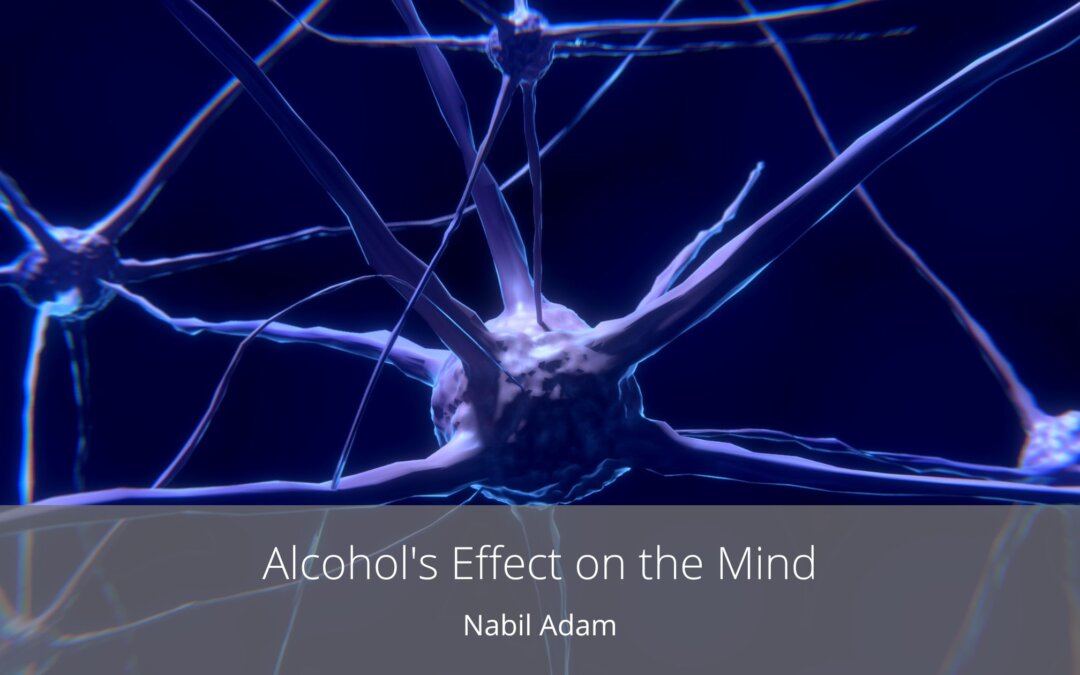Alcohol, a prevalent substance in social and cultural settings worldwide, is often consumed for its psychoactive effects. While moderate drinking can be a part of social rituals, the impact of alcohol on the human mind is complex and multifaceted. Beyond the initial feelings of relaxation and euphoria, alcohol can significantly alter cognitive functions, emotional well-being, and mental health. This article delves into the nuanced effects of alcohol on the brain, examining how it alters neurotransmitter activity, impacts mental health, and affects cognitive functions over time. Understanding these effects is crucial for informed decisions about alcohol consumption and recognizing the fine line between social drinking and potentially harmful overindulgence.
Alcohol’s effect on the brain is profound and varied. It primarily functions as a central nervous system depressant, slowing brain function and neural activity. This is mainly due to its impact on neurotransmitters, the brain’s chemical messengers. Alcohol increases the activity of gamma-aminobutyric acid, which leads to relaxation and reduced anxiety, a common reason many turn to alcohol. Concurrently, it inhibits glutamate’s effects, which further slows brain activity.
The brain’s reward system is also notably affected. Alcohol consumption triggers the release of dopamine, a neurotransmitter associated with pleasure and satisfaction, which contributes to its addictive potential. Over time, regular alcohol use can alter these neurotransmitter systems, leading to tolerance, dependence, and potentially addiction.
Besides these immediate effects, alcohol can have long-term impacts on brain structure and function, mainly when consumed excessively. These changes can include neurodegeneration, a decrease in brain volume, and impaired cognitive abilities. Thus, while alcohol’s immediate effects may be appealing to many, its profound and long-lasting impact on the brain cannot be underestimated.
Impact on Mental Health
Alcohol’s influence extends beyond physical health to significantly impact mental health. Initially, alcohol can seem like an effective way to alleviate stress, social anxiety, or depression due to its depressant effects. However, this is misleading and temporary. Regular alcohol use can exacerbate mental health issues, leading to a vicious cycle where drinking begets more drinking in an attempt to self-medicate.
Chronic alcohol consumption leads to a risk of developing anxiety and depressive disorders. The reason is twofold: on the one hand, the alteration of brain chemistry by alcohol can lead to mood swings and emotional instability. On the other hand, the social, professional, and legal problems that often accompany heavy drinking can themselves be sources of significant mental stress and anxiety.
Furthermore, alcohol has a complex relationship with sleep. While it may help initiate sleep, it significantly disrupts sleep architecture, leading to poor quality sleep and, consequently, impacting mental health. This disruption can contribute to a cycle of fatigue, increased reliance on alcohol to sleep, and a heightened risk of mood disorders.
Cognitive Function and Memory
Alcohol significantly affects cognitive functions, including memory, attention, and decision-making. These effects vary depending on the amount and frequency of consumption. Occasional moderate drinking might lead to temporary lapses in memory or impaired decision-making. However, chronic heavy drinking can lead to severe cognitive deficits and even permanent brain damage.
One of the most striking effects of alcohol is on memory. Alcohol can cause blackouts, periods where the drinker cannot remember events that occurred while intoxicated. These blackouts happen because alcohol impairs the brain’s ability to form new long-term memories.
Moreover, chronic alcohol abuse is linked to the development of severe and lasting cognitive impairments. This includes a condition known as Wernicke-Korsakoff Syndrome, a severe brain disorder resulting from a thiamine (vitamin B1) deficiency common in heavy drinkers. This syndrome is characterized by acute confusion, impaired coordination, and the formation of false memories.
Additionally, alcohol’s impact on the frontal lobes, the area responsible for executive functions like planning, organizing, and controlling impulses, can lead to poor judgment and risky behaviors. This can have long-term consequences on personal and professional life.
Long-Term Brain Changes
Long-term effects can be significant and, in some cases, irreversible. Prolonged heavy drinking can lead to structural changes in the brain. Brain imaging studies have shown that chronic alcohol abuse can result in a reduction in brain volume, particularly in regions crucial for cognition and emotional regulation.
Functional impairments accompany these structural changes. Alcohol-induced neurodegeneration can lead to cognitive deficits, particularly in tasks requiring complex cognitive processing and executive functioning. Long-term alcohol use can also affect neurotransmitter systems in a way that persists even after cessation of drinking, contributing to the risk of relapse in individuals trying to abstain.

